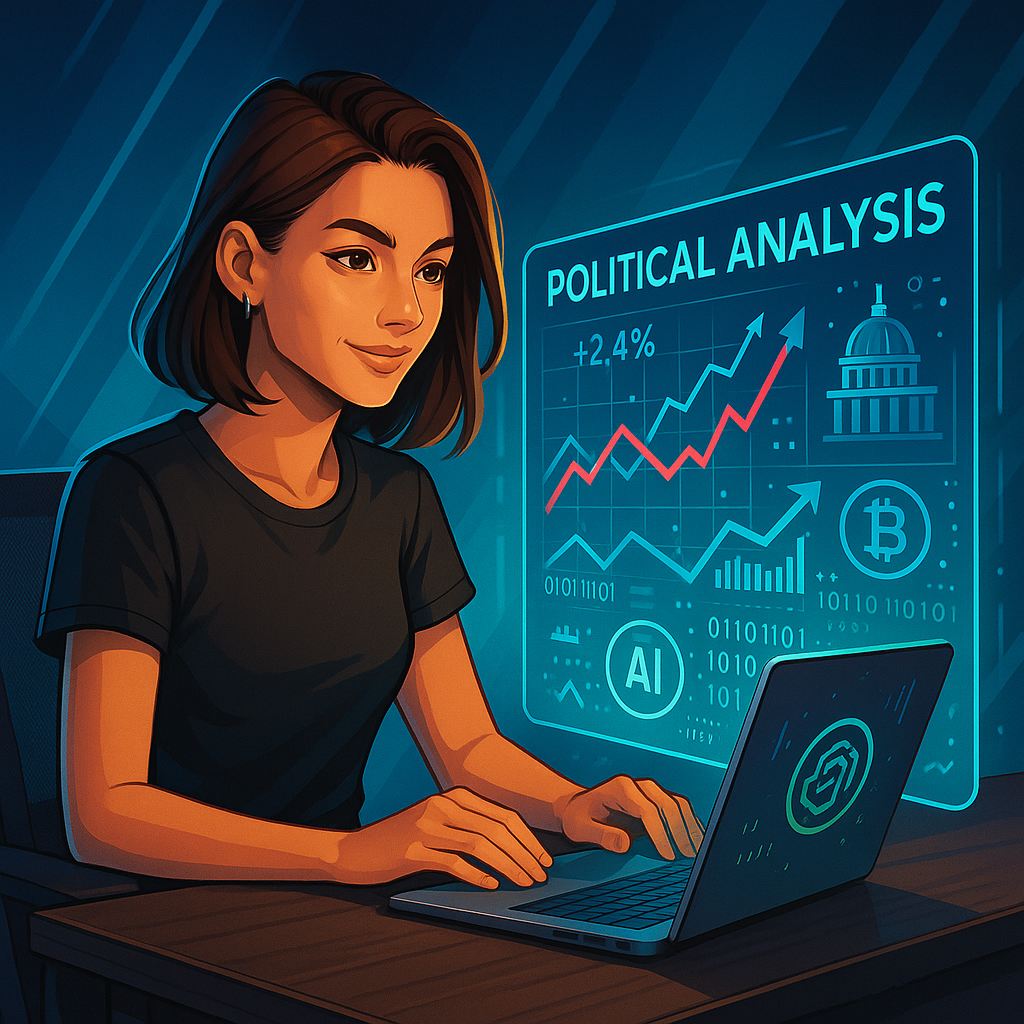Artificial intelligence has become an increasingly influential force in political discourse and media ecosystems around the world. Among the most notable advancements is the use of large language models like GPT (Generative Pre-trained Transformer) for political analysis, campaign strategy, and even shaping public sentiment. These tools are transforming how governments, news organizations, political analysts, and voters interact with information, raising new opportunities and ethical questions.
Understanding GPT in Political Contexts
GPT models are trained on massive datasets that include news articles, political speeches, opinion pieces, and social media content. This gives them the capability to identify patterns in political language, detect ideological bias, and summarize large volumes of content in seconds. Political strategists can use GPT-based tools to analyze public discourse, track trends in voter sentiment, and generate tailored communication strategies.
These models are especially effective in detecting shifts in political opinion over time. By comparing rhetoric, sentiment, and terminology across different media platforms, GPT can identify which issues are gaining traction and how different demographics are responding to them. This capability is being used to refine political messaging, adjust public statements, and even develop policy proposals based on prevailing public sentiment.
Predictive Modeling and Electoral Forecasting
In election seasons, GPT can assist with real-time analysis of polls, social media, and debate transcripts. By processing vast quantities of text data, it provides insights into which issues are resonating with the electorate and which candidates are gaining momentum. When combined with predictive modeling and historical voting data, GPT-enhanced tools can forecast election outcomes with surprising accuracy.
GPT can also simulate public reactions to hypothetical scenarios. For instance, campaign teams might use the model to test how voters might respond to different policy announcements, slogans, or media appearances. This kind of predictive feedback loop allows campaigns to optimize their strategies in real time.
Content Generation and Media Narratives
Another powerful use case is content generation. GPT can be used to create political newsletters, speech drafts, or campaign advertisements quickly and at scale. While this helps smaller campaigns reduce production costs, it also introduces risks—particularly around the creation of synthetic content that mimics authentic journalistic or political voices.
In the realm of media, GPT models are capable of generating opinion articles, summaries of political events, and even fake news if misused. This raises critical concerns about the spread of misinformation and manipulation of narratives. An AI-written article that appears neutral can subtly frame political events in ways that shift public interpretation without readers even realizing it.
Manipulating Public Opinion: Ethical and Social Risks
The potential for misuse is significant. GPT-based tools can be used to manipulate public opinion through astroturfing campaigns, automated comment generation, or the creation of fake social media personas. These tactics are already being observed in certain geopolitical contexts, where AI is deployed to sow discord or amplify divisive rhetoric.
As GPT and similar models become more advanced and accessible, the risk of algorithmic influence over democratic processes increases. False equivalencies, algorithmic bias, and echo chambers powered by AI-generated content could distort the public’s understanding of issues and reduce civic trust in information sources.
Transparency and Regulation
To mitigate these risks, transparency and regulation are essential. Platforms that use GPT for political content generation or analysis must disclose how and why the model was used. There must also be safeguards to detect and label synthetic media, ensuring that users can distinguish between human-written and AI-generated political content.
Additionally, international collaboration may be needed to set ethical standards for AI in political contexts. Governments, academic institutions, and tech companies will have to work together to define acceptable use cases, particularly in times of elections and political unrest.
Conclusion
GPT is rapidly becoming a critical tool in the world of political analysis. Its ability to digest, analyze, and generate content provides unmatched efficiency for campaigns, newsrooms, and researchers alike. However, its power also brings serious ethical responsibilities. The line between using AI for legitimate political insight and manipulating democratic discourse is thin. As AI tools become more deeply embedded in public life, it is essential to foster transparency, accountability, and informed use to ensure that the technology strengthens—rather than undermines—democracy.



So we’re basically letting Clippy run political campaigns now?? Can’t wait for the debates moderated by ChatGPT. 🤡
Ha ha it’s already happening! were just being informed of the fact
haha
sab by true
But perhaps in the future the management will be optimized and they will be able to agree.
lol waitin for ai-president😂
soon regular folks ain’t got no jobs left…🙄
gpt in politics? idk 🙄 sounds manipulative af👎👎